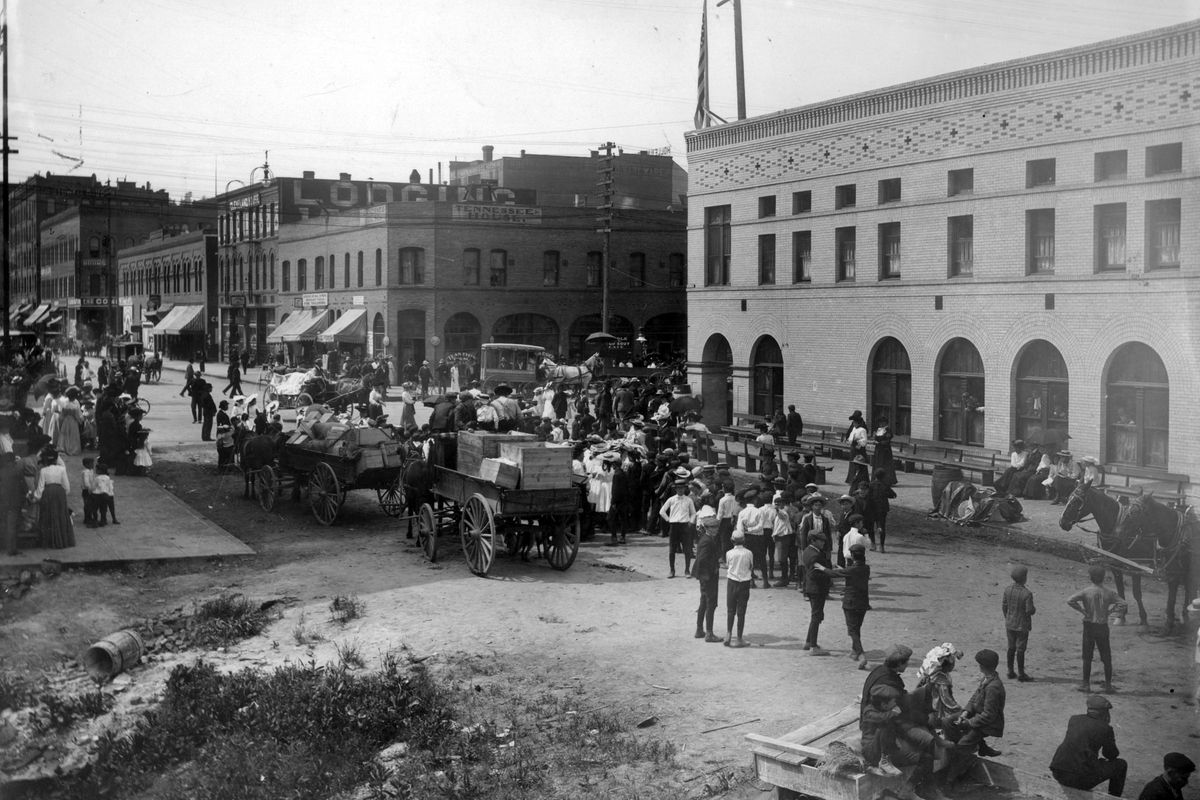Then and Now: Tennessee House now a parking lot

At the start of the 20th century, most of the buildings along Front Street, which is now Spokane Falls Boulevard, were hotels catering to railroad workers and weary travelers – especially those who didn’t want to spend much money on a night’s sleep.
The Coeur d’Alene Hotel, the Seattle Hotel, the Great Northern Hotel, the Dempsey Hotel and several others had modest, and sometimes seedy, rooms to rent, usually with a bathroom down the hall. The Coeur d’Alene Hotel belonged to “Dutch Jake” Goetz and Harry Baer and was a magnet for visitors.
But around the block were many cheaper options, like the Tennessee House hotel in the two-story Nagel Block, built in 1900 on the southwest corner of Front and Stevens. The local newspapers delighted in recounting the criminal arrests and the tawdry stories of domestic discord of these transient residents.
In 1904, Walter Russell fought with his wife at the Tennessee House and both were arrested for disorderly conduct. Still fighting at the police station, the woman said she and Russell had married the year before in Lewistown, Montana. A detective went to their hotel room and found a partially burned marriage license. Mr. Russell took the stand to swear he had never been in Lewistown, but had lived with the woman as his wife. The case was continued so the prosecutor could write a letter to Lewistown and see who was lying.
In 1906, a miner named William Kiley accused a fortuneteller of stealing $400 from him at the Tennessee House. The “gipsy” was 20-year-old May Adams, one of a group of palm readers ordered out of Butte two weeks earlier who had set up business in Spokane. The money was never recovered.
By 1910, Tennessee House became Liberty Hotel, which it remained until the 1940s. The Nagel Block and the surrounding buildings were some of the first post-1889 buildings brought down specifically to create a downtown parking lot, including a gas station, in 1956.
– Jesse Tinsley